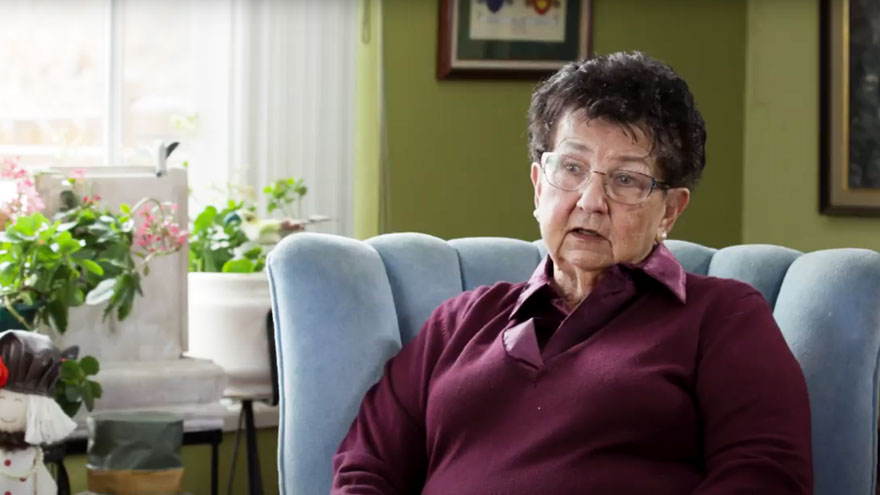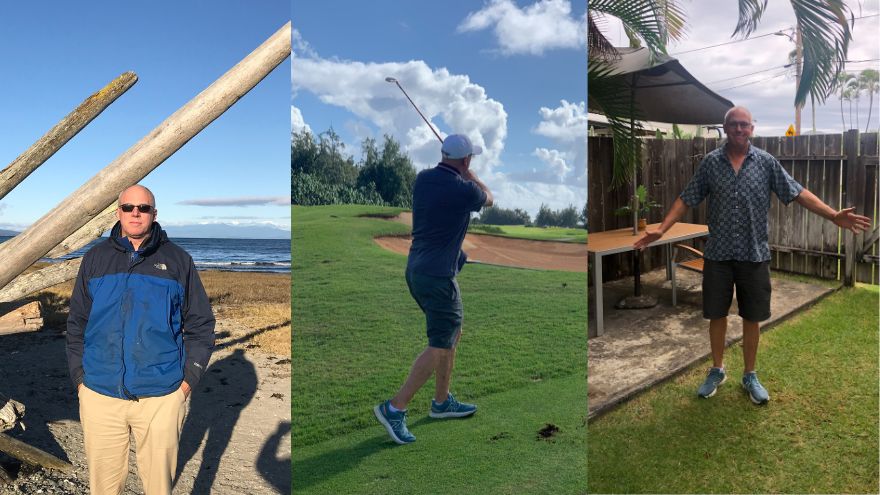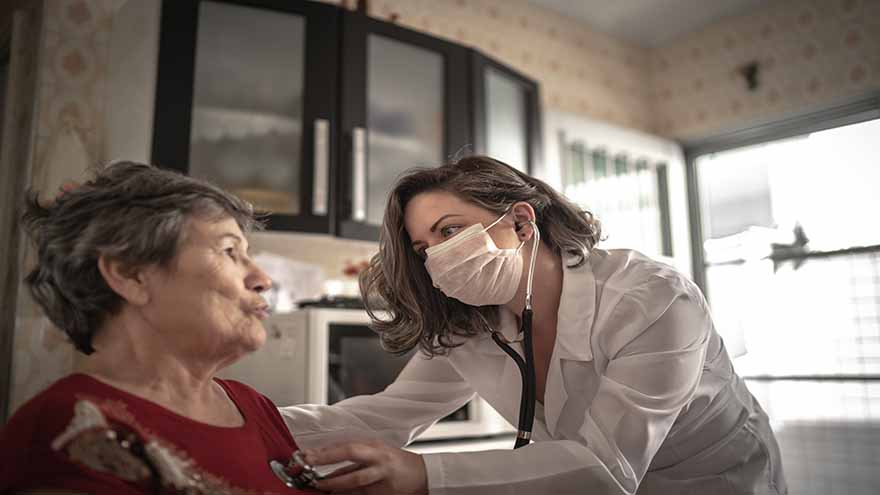Search
-
Nationally Recognized Heart Surgeons Join Renown Health
Two Open-Heart Surgeons and Two Advanced Practitioners Bring Nearly 70 Years of Local Experience. As part of a continuing focus on offering comprehensive care for patients experiencing cardiac and vascular disease across northern Nevada, Renown Health Department of Surgery and Renown Institute for Heart & Vascular Health have developed Renown’s first division of cardiothoracic surgery dedicated to heart surgery patients. “Today, I am proud to announce cardiothoracic surgeons, Athan Roumanas, M.D., FACS, and Joseph Brandl, M.D., FACS, who have more than 45 years of combined experience caring for northern Nevadans in need of open-heart surgery, will lead this new practice at Renown,” said Anthony Slonim, M.D., Dr.PH., FACHE, President and CEO of Renown Health. “Advanced practitioners Cindy Powers and Ashley White bring another 23 years of expert care to our community and the new division of cardiothoracic surgery.” Dr. Roumanas has 18 years of experience in northern Nevada. He is a clinical associate professor of surgery at the University of Nevada, Reno School of Medicine (UNR Med) and currently serves as medical director of cardiothoracic surgery for Renown Regional Medical Center. Since 1991, Dr. Brandl has cared for our region and held numerous positions throughout the community including Renown’s director of cardiac surgery and community adjunct faculty for UNR Med. Renown Institute for Heart & Vascular Health offers the most highly-skilled and experienced heart and vascular team and the most advanced heart center in the region. Renown has long been the region’s heart care leader – performing the area’s first open-heart surgery, angioplasty, stent and valve replacements decades ago. In 2015, Renown Regional became the first hospital in the region to offer transcatheter aortic valve replacement (TAVR), a lifesaving alternative to open-heart surgery for patients considered high-risk or inoperable. Renown is among the nation’s top-performing hospitals for heart attack treatment and one of only 105 hospitals nationwide to receive the American College of Cardiology ACTION Registry Silver Performance Achievement Award recognizing success in implementing a higher standard of care for heart attack patients. Additionally, Renown’s Roseview, Sierra and Cardiac Intensive Care Units (ICUs) were the only ICUs in Nevada to receive the Beacon Award of Excellence from the American Association of Critical Care Nurses. This distinction is based on sustained unit performance and patient outcomes that exceed national benchmarks. As Reno’s only locally-owned, charitable, not-for-profit integrated health network, Renown continues to meet customer demand for affordable healthcare and enhanced service and access by keeping the highest levels of clinical quality care right here in our community. Patients in need of advanced heart care can speak with their care provider about Renown Medical Group – Specialty Care, which can be reached at 775-982-6270 or visit renown.org/HeartCare.
Read More About Nationally Recognized Heart Surgeons Join Renown Health
-
Heart Surgery
Cardiothoracic Surgery Led by a team of three distinguished cardiac surgeons with over 40 years of combined experience, Renown Health's Cardiothoracic Surgery program is the top-ranked cardiothoracic surgery program in Nevada.
-
Structural Heart Program
The Renown Health Structural Heart Program was the first integrated program of its kind in northern Nevada. Since the beginning, we've been dedicated to providing specialized care to patients with complex and progressive structural heart and valve disease. Our team of experts offer comprehensive diagnostics, advanced treatment options, leading-edge technologies and top-level expertise.
-
Happy and Healthy Life After Heart Valve Replacement Surgery
Watch what happens when a family’s matriarch finds out she has to have heart valve replacement surgery. Thanks to supportive cardiac care, she is now back to health and enjoying her extended family with a healthy heart. Marilyn O’Gorman has a full heart full of love: Just ask her six children, 15 grandchildren and six great grandchildren. However, in 2009, tests showed that same heart had medical issues. So her close family was by her side when she underwent heart valve replacement surgery. O’Gorman says her heart doctor, Athan Roumanas, MD, FACS, put her at ease about the surgery. “You’re very nervous — you’re scared,” says O’Gorman. “You don’t know: Are you going to come out of it? Is it going to work?” Heart Valve Replacement Surgery Comes with an Unexpected Question O’Gorman was asked to choose whether she’d prefer a pig or a cow valve — ultimately inquiring of Dr. Roumanas which one he’d choose for his own mother. “And he said, ‘Well, probably pig,'” she recalls. “And I said, ‘OK, I’ll oink for you.’ And that’s how I got that, and he did a wonderful job.” O’Gorman continues her care at the Renown Institute for Heart and Vascular Health, so she can stay heart healthy and spend her free time with the many generations of family in her life.
Read More About Happy and Healthy Life After Heart Valve Replacement Surgery
-
The Salty Six: Are High-Sodium Foods Increasing Your Stroke Risk?
Excess amounts of sodium doesn’t just increase your risk of a heart attack, it can also increase your risk of a stroke. Unfortunately, avoiding that saltshaker may not be enough. Did you know that the average American consumes 3,400 milligrams of sodium each day? That’s a dangerous number considering that the American Heart Association recommends limiting daily sodium intake to 1,500 milligrams (about half the weight of a penny) to reduce the risk of heart disease and stroke. The problem is not necessarily that you’re putting too much salt on your food, it’s that salt is already in the foods you’re regularly eating. To help keep your sodium intake at a healthy level, make sure you’re aware of “The Salty Six,” six sneaky foods that are surprisingly high in sodium. Breads, Rolls and Tortillas: Although breads and tortillas may not initially appear to be high in sodium, we often consume several servings. Make sure to keep track of your total servings to see how they add up. Deli Meat, Cured Meats and Poultry: It may surprise you that six thin slices of deli meat can add up to more than half of your daily limit, so be mindful when building those sandwiches. Also, do your best to avoid cured meats, which often means the meat has been salted. Substitute uncured, skinless meats instead. Cheese: Salt is an important addition in the cheese-making process, as it prevents bacterial growth. Unfortunately, that added salt can increase your health risks. Limit the amount of cheese you add to meals to keep your sodium content down. Pizza: Take a quick look at the first three items above and it should be no surprise as to why pizza made the list. One slice and you’ve met at least half of your daily limit. Go easy on the cheese and try adding more veggies instead of meat. Canned Soup: One cup of canned soup can be as high as nearly 1,000 milligrams of sodium. When shopping for canned soup it’s important to check the label – not just on sodium content but serving size as well. Always select low-sodium options when possible or cook your own soup at home. Sandwiches and Burgers: A sandwich or burger from your favorite restaurant can contain more than 100 percent of your daily sodium limit. When dining out, it is best to select low-sodium options or eat a half portion to limit the amount of salt. If some of your favorite foods are on this Salty Six list, don’t panic. Although these foods can be high in sodium, it isn’t necessary to cut these foods out of your diet completely. It’s just important to eat them in moderation and be mindful of your daily sodium intake. Look for low-sodium options, use herbs and spices instead of table salt and do your best to stay under the recommended daily limit of 1,500 milligrams.”
Read More About The Salty Six: Are High-Sodium Foods Increasing Your Stroke Risk?
-
Excellence in Heart Care Changes a Patient's Life
Being diagnosed with a chronic heart condition like atrial fibrillation (A-fib) can shift the course of your entire life. Embracing heart medications and lifestyle changes become your norm, and thanks to advancements in medicine and medical technology, managing the condition can bring you to a new sense of normalcy. But what if a different option was possible – one that would make medications and activity limits a thing of the past? This became the reality for Renown Health patient Richard Preyer after receiving a hybrid catheter ablation. Thanks to the vigilant surgical care of Shining Sun, MD, a cardiologist at the Renown Institute for Heart & Vascular Health, and his compassionate team, Richard has a new lease on life. Minimally Invasive with Maximal Results An A-fib patient since 2010 who had been living with an unfinished ablation, the 59-year-old Carson City resident turned to the internet to look for alternate solutions. He had heard that the Renown Institute for Heart & Vascular Health was a top-tier location for cardiovascular care. “I changed health insurance plans through Nevada Health Link to ensure I could see a Renown cardiologist,” said Richard. Choosing a cardiologist was an even easier decision for Richard. Dr. Sun’s introductory Find a Doctor video on Renown’s YouTube channel, where he displayed his expertise and determination, was more than enough for Richard to choose him as his cardiac care leader. At his first visit, Dr. Sun reviewed Richard’s records, and noted his prior unfinished ablation. The nine-hour procedure had been performed several years ago. With the enhanced technologies at Dr. Sun's disposal, Richard was excited at the thought of his life potentially being changed for good – with a minimally-invasive solution. Dr. Sun collaborated closely with Richard’s previous and current care teams – including a surgeon who performed a maze operation on him right before his surgery at Renown, to ensure his hybrid ablation was tailored uniquely to him. “Dr. Sun is clearly a very powerful cardiologist with many connections, and the coordination between his team and my other doctors was great,” said Richard. After working on the exterior of the heart in the first phase of the surgery and the interior of the heart during the second phase, Richard’s hybrid ablation was successful, completing the unfinished portion of his previous ablation. “Fixing A-fib can take one to three ablations, and sometimes it never holds,” said Richard. “That is one of the largest reasons why I am so thankful for this procedure and how it ended up.” Life After A-fib Now comes the long, arduous healing process, right? Not for Richard. With only eight incisions (four on each side of his chest), he was able to remove his bandages after two days, and he healed completely in one week. “I was even back to taking three-mile walks within a week of my operation,” said Richard. No more blood thinners. No more activity limits. And most importantly for Richard, no more heart-stabilizing medications that came with side effects he didn’t enjoy. He attributes his enhanced life to Dr. Sun and his team. “I highly recommend Dr. Sun and everyone that works with him,” he said. “Everyone in the group, from the nurses and anesthesiologists going above-and-beyond to the schedulers who helped me navigate the appointment process, made me have a lot of confidence. Their calm demeanors made so much difference.” Today, Richard now enjoys elongated walks in the northern Nevada outdoors, exotic vacations with his wife and, as he describes, “feeling like I’m in my 40’s again.” Learn more about the region's leader in cardiac health, heart and vascular care here.
Read More About Excellence in Heart Care Changes a Patient's Life
-
Your Top 5 Questions about TAVR Answered
Your heart is the muscle in charge of pumping blood to your entire body. This vital organ is made up of chambers, valves and blood vessels. Your heart valves work similarly to a one-way door: they open and close, controlling blood flow in the correct direction through the heart chambers. For patients who have been diagnosed with a heart-related condition like aortic valve stenosis (narrowing), it is important to know treatment options. Most might think open-heart surgery is the only way to treat a heart valve, but many hospitals, including Renown, also offer a minimally invasive procedure called a Transcatheter Aortic Valve Replacement (TAVR). Dr. Abhilash Akinapelli of Renown Institute for Heart & Vascular Health shares his answers to the top five TAVR questions: 1. What causes aortic valve stenosis? Aortic valve stenosis can be caused by a variety of factors. The main reasons being wear and tear of the valve due to aging; genetically abnormal heart valve (bicuspid aortic valve); long-standing high blood pressure; and other reasons like radiation exposure. 2. Am I a candidate for TAVR? Renown’s heart care teams are made up of your primary care provider, cardiologist and cardio thoracic surgeon. They will evaluate if patients are a good candidate for the TAVR procedure by performing a variety of screenings and tests. Some of these include: Echocardiogram Electrocardiogram (ECG or EKG) Chest X-ray Exercise tests or stress tests Cardiac computerized tomography (CT) scan Cardiac catheterization 3. What are the advantages of the TAVR procedure? The Transcatheter Aortic Valve Replacement (TAVR) procedure is much less invasive than open heart surgery, otherwise known as a Surgical Aortic Valve Replacement (SAVR). Patients can typically return to their normal lifestyles within a week after leaving the hospital. During the TAVR procedure, a stent valve mounted on a balloon is advanced to the heart through the blood vessels in the groin without any incision. Once in position, the balloon will be inflated to firmly expand the new valve inside the diseased old valve, pushing it away to the sides. Once the new valve is in place, it begins working immediately and the deflated balloon is removed. The surgical procedure is approximately one hour long. Patients can get up and walk after four hours and will be discharged the following day if no complications arise. Compared to a SAVR, recovery time is much shorter and less risky for patients above the age of 75. A big advantage for anyone who fits under the criteria for a TAVR. 4. Is the procedure painful? The TAVR procedure is not surgery, but you will still be asleep during the procedure. Since no incision is made, it is essentially a painless procedure. Patients may experience slight discomfort such as aches and pains at the entry site of the catheter. 5. Can I have an MRI and X-rays done after having a TAVR valve? Yes, patients can have MRI scans and X-rays after TAVR. For further questions and information about the TAVR procedure, please consult with your Renown heart care team at 775-982-2452 or through MyChart.
-
True Grit Healing a Cowboys Heart
At 85, James Domingos is still enjoying life as a cowboy, thanks to a transcatheter aortic valve replacement. Always rolling with the punches when it comes to life, 85-year-old James Domingos faced his health issues with the same grit. For many years, he roped cattle for friends and rounded up horses for the Bureau of Land Management. In recent years, a pacemaker controlled the rhythm of his heart, but didn’t slow him down. “We used to be able to take walks for 15 minutes in one direction and take the dog,” says Domingos’ wife, Joy. “Then it got to be less and less.” Tests at Renown Health revealed a heart valve was nearly closed. His heart doctor, Jake Ichino, MD, FACC, FSCAI, suggested a transcatheter aortic valve replacement, known as TAVR, which repairs a heart valve without removing the damaged valve. The procedure is recommended for patients who are at high risk for open heart surgery.






